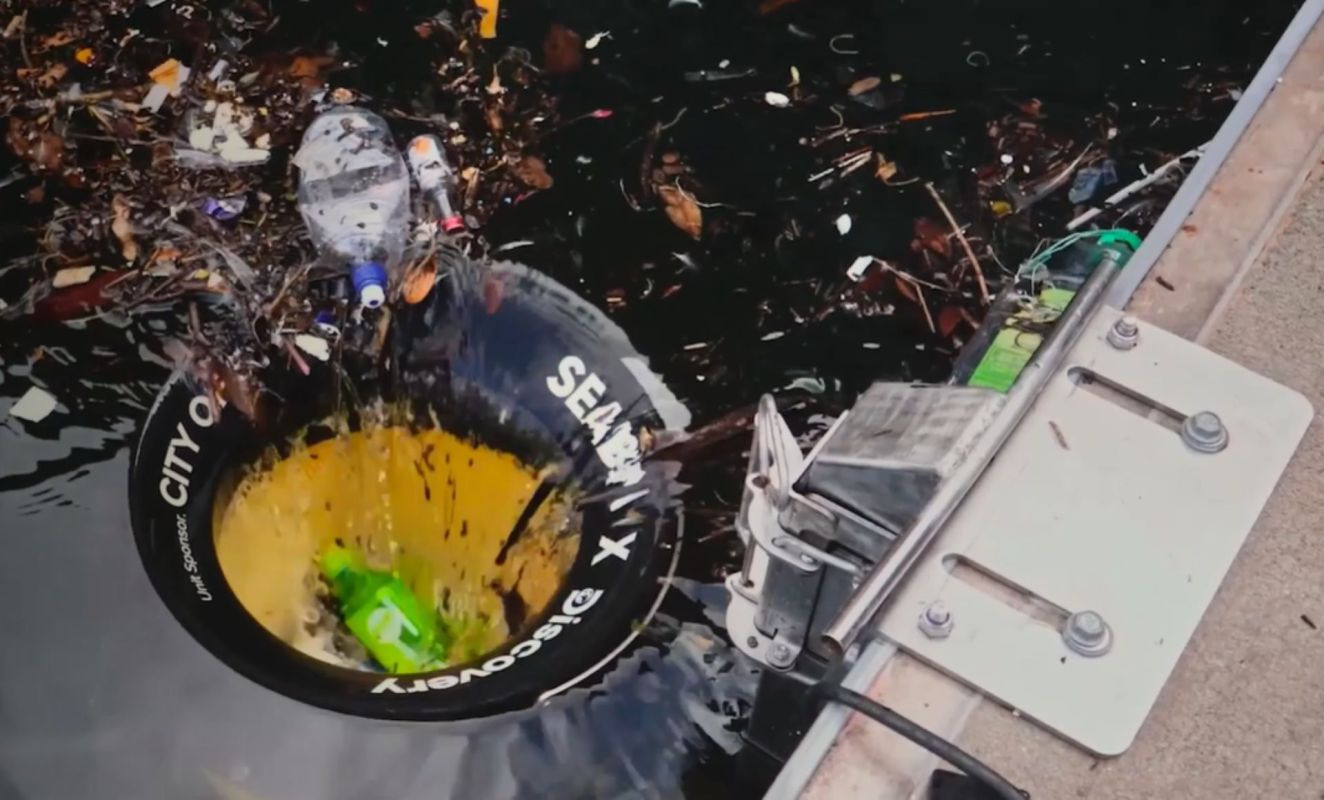From skimming the waves on their boards to skimming the ocean for trash, two Australian surfers have developed technology to collect pollutants from the sea.
Shipbuilders by trade, Pete Ceglinski and Andrew Turton became frustrated with the waste they were seeing in the otherwise pristine waters, so they came up with a solution to deal with it, Business Events Australia reported.
After developing a prototype over several years, starting in 2016, with help from private funding and a crowdsourcing campaign on Indiegogo, the pair launched Australia's first permanent Seabin in Sydney Harbor in 2019, as the Australian National Maritime Museum reported. Since then, the company has gone from strength to strength.
The Seabin is, essentially, "a bucket-shaped container with a catch bag," Ceglinski, who is managing director of the company, told Business Events Australia. The device sucks in water and collects floating rubbish, while it's also able to absorb oil and grease that collects on the ocean surface.
As of November 2022, Seabin collected 100 tons of marine litter off the coast of Sydney since July 2020 and 2.1 tons in the waters surrounding Los Angeles, California, from July 2022 through November 2022.
But the innovation didn't stop there. Seabin is now using data to inform a range of companies — from Yamaha to Ben & Jerry's — about effective sustainability programs.
"This dynamic business model has allowed us to partner with some of the biggest brands in the world and turn our environmental data into real world impact," Ceglinski told The Fish Site.
"We're able to offer credible and transparent nature-repair data, adding value to our clients' sustainability portfolios, while holding true to our mission of creating a positive impact on the ocean."
The data will also be important for companies' reporting purposes, and it will allow them to demonstrate to customers the positive impact they are having in terms of reducing pollution — and, hopefully, avoid accusations of greenwashing.
According to The Fish Site, Seabins are able to capture one plastic item every six seconds in Sydney Harbour, and the goal is to filter the harbor's waters four times a year to remove microplastics — which are increasingly found in the bodies of marine animals.
While data might be the main focus of the business at the moment, Seabins are still attracting interest from all over the world. Even during the developmental phase, Ceglinski told Business Events Australia they were receiving 1,300 emails a day at one point from interested customers. By 2050, the company hopes to have Seabins in 100 cities worldwide.
Join our free newsletter for weekly updates on the coolest innovations improving our lives and saving our planet.









